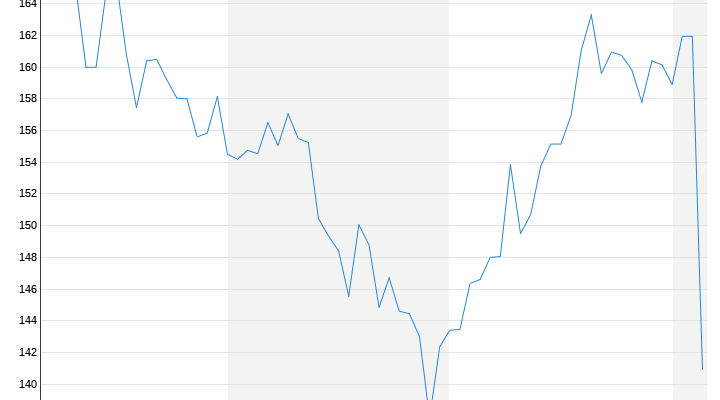“Very disappointed”
Study failure sends Merck course into a tailspin
December 6, 2023, 11:34 a.m
The pharmaceutical company Merck had expected billions in sales for its MS drug evobrutinib. But in a large study, important goals are not achieved. The effect does not exceed that of already approved medications. The securities are losing significantly on the stock market.
Investors are throwing shares in the pharmaceutical company Merck KGaA out of their portfolios in a big way. The reason is the failure of the hopeful evobrutinib for the treatment of multiple sclerosis (MS). The group had previously announced that two pivotal Phase III clinical trials with the active ingredient did not reach their primary endpoint. The stock is down 13 percent in early trading. The Merck KGaA paper is by far the weakest stock in the leading index DAX.
Merck was “very disappointed” with the results, said Danny Bar-Zohar, global head of research and development and chief medical officer of the healthcare division. “Our goal with evobrutinib was to address the large treatment gap in smoldering multiple sclerosis and to provide an effective means of controlling relapses.”
The drug was one of Merck’s biggest hopes in the pharmaceutical pipeline. CEO Belen Garijo believed it had blockbuster potential, i.e. possible top sales in the billions. Merck had to cope with a setback in the development of evobrutinib in the spring when the US Food and Drug Administration (FDA) ordered a partial suspension of the clinical trial after concerns arose that the drug could cause liver damage. In the two affected patients, the liver values had completely normalized after discontinuation of the active ingredient, Merck said at the time.
Evobrutinib belongs to a class of drugs called BTK inhibitors, which are designed to selectively block the cells that trigger the damaging autoimmune response in MS. Competitors such as Roche, Sanofi and Novartis are also developing drugs in this class. Merck’s study of evobrutinib included more than 2,000 participants. The drug was unable to achieve the goal of reducing patients’ so-called annualized relapse rates compared to Sanofi’s MS tablet Aubagio, which was approved in the EU in 2013.
For Merck, it is another setback in the pharmaceutical business after the company had to end work on the cancer drug bintrafusp alfa in 2021 after two study flops, which was also considered a great source of hope. The company has already had a long period of success in the pharmaceutical business and in 2017 was able to bring a new drug onto the market for the first time in nine years with the cancer immunotherapy Bavencio.
